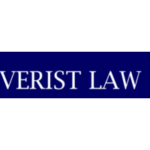-
Please briefly describe the regulatory framework and landscape of both equity and debt capital market in your jurisdiction, including the major regimes, regulators and authorities.
In Japan, the law governing regulatory framework about the equity and debt capital markets is the Financial Instruments and Exchange Act (FIEA). The FIEA provides rules covering the following matters:
- Disclosure of securities and corporate information of its issuers
- Disclosure in tender offers
- Disclosure in substantial shareholding
- Regulations on transactions in securities, including market manipulation and insider trading
When soliciting the purchase of stocks or corporate bonds from an unspecified number of investors, the issuer is required to file a securities registration statement (Yukashoken todokedesho) in advance. The period during which the securities registration statement is effective (i.e., waiting period) is generally 15 days. For issuers that have already disclosed corporate information, this period may be shortened to 7 days. There is also a shelf registration system, which is often used when listed companies issue corporate bonds. Additionally, listed companies and companies that have filed a securities registration statement are required to make ongoing disclosures, such as submitting annual securities reports.
Disclosure is made through a network system called EDINET. Information disclosed through EDINET can be viewed online by anyone.
The ministry responsible for the FIEA is the Financial Services Agency (FSA). The Securities and Exchange Surveillance Commission (SESC), an agency under the Financial Services Agency, monitors the market and investigates transactions.
Listed companies are required to comply with the listing rules established by the stock exchange. Timely disclosure based on these rules is also important for those companies.
-
Please briefly describe the common exemptions for securities offerings without prospectus and/or regulatory registration in your market.
In private placements, issuers are exempt from the obligation to file a securities registration statement. Under the FIEA, the following three cases are private placements with respect to offering shares and bonds;
- Private placement to Qualified institutional investors (Tekikakukikan Toshika)
- Private placement to Professional investors (Tokutei Toshika)
- Private placement to a small number of investors
Qualified Institutional Investors and Professional Investors are both defined by the FIEA as investors who possess the specialized knowledge and experience required for investments in securities under the FIEA. Qualified institutional investors include financial institutions, as well as certain individuals who may register as such. Professional Investors are a broader concept than Qualified Institutional Investors, and certain companies of a certain size may also register as Professional Investors. If solicitation is conducted solely toward these investors and there is little risk of transfer to parties other than such investors (e.g., entering into a transfer-restriction agreement), such transactions qualify as private placements.
A private placement for a small number of investors is an offering when the number of persons solicited is 49 or fewer and there is little risk of transfer to a large number of persons. It is important to note that the count of 49 persons refers to the number of persons solicited, not the number of persons who actually acquire the securities. Additionally, when a listed company issues shares, even if there is only one person solicited, the issuer cannot rely on the exemption of a private placement for a small number of investors, as the requirements for transfer restrictions are not met.
Even though it is not a private placement, if a total issue amount is less than 100 million yen, a securities registration statement is not required.
The obligation to provide a prospectus is exempted when the issuer is not required to submit a securities registration statement.
-
Please describe the insider trading regulations and describe what a public company would generally do to prevent any violation of such regulations.
(1) Insider trading is regulated under Article 163 of the Financial Instruments and Exchange Act (“FIEA”). The primary securities subject to regulation include shares, share option certificates, and corporate bonds issued by public companies, as well as J-REITs (Japanese real estate investment trusts) and listed infrastructure funds. ETFs and most mutual funds are not covered. The two main categories are those for insiders and related parties of public companies (“Public Company Insiders”), and those for tender offerors and their related parties, etc. This section will focus on Public Company Insiders.
Public Company Insiders must not trade or otherwise deal in a company’s shares or other securities based on material facts set forth in the FIEA learned in connection with their duties or in connection with the performance of a contract, etc. before the fact is made public. Public Company Insiders include primary recipients of information received from insiders of the public company. However, people who receive information from a primary recipient are not subject to the regulation.
Penalties for insider trading include criminal and administrative penalties (administrative monetary penalties). The statutory criminal penalty is imprisonment for up to five years, or a fine of up to JPY 5,000,000, or both. Administrative monetary penalties are determined by the amount of profit obtained through insider trading.
(2) Public companies must manage information internally to prevent violations of insider trading regulations, and must establish a system to accurately disclose material facts in a timely manner. In addition, many public companies regularly offer insider trading training to their officers and employees. Furthermore, Japan Exchange Group (JPX), which operates the Tokyo Stock Exchange, requires public companies to register all directors and officers with the Japan Insider Registration & Identification Support System (J-IRISS), and many companies have registered.
-
What are the key remedies available to shareholders of public companies / debt securities holders in your market?
Damage claims against the issuing company or its officers, and injunctive relief are the key remedies.
If there are false statements in securities registration statements, prospectuses, securities reports, or other continuing disclosure documents, shareholders and bondholders may consider filing damages claims against the issuing company or its officers.
Tort is a legal basis for damages claims. The FIEA provides provisions to alleviate the burden on investors to prove causation and damages, such as presumption of causation, estimation of damages, and shifting the burden of proof of negligence. These special provisions apply in the following cases: (i) where there are false statements regarding a material particular; (ii) where a material particular that should have been disclosed are omitted; or (iii) where a material particular necessary to prevent misleading are omitted.
With regard to injunctive relief, under the Companies Act shareholders have the right to request the issuing company to cease the issuance of shares if the issuance of shares by the company violates laws and regulations or the articles of incorporation, or is conducted in an extremely unfair manner.
No such special provisions are provided for bond holders.
-
Please describe the expected outlook in fund raising activities (equity and debt) in your market in 2025.
The following are some expected outlooks in fund raising activities in Japan from the view point of changes in systems and regulations.
- The Tokyo Stock Exchange (TSE) significantly revised its market classifications in April 2022 (from four market divisions: 1st Section, 2nd Section, Mothers, and JASDQA to three market segments; Prime Market, Standard Market and Growth Market), which tightened some of the criteria for maintaining listing status compared to the previous criteria. As a result, companies that were listed prior to the change were granted a transition period, which ended on March 1, 2025. As a result, companies that cannot meet the new listing criteria and have their market segments changed or are delisted may be affected (although in Japan, equity financing through stock issuance is not necessarily conducted frequently outside of the initial listing).
- TSE implemented institutional reforms of the listed venture fund market in 2025. The listed venture fund market was established in 2001 but have not been actively utilized until now. The reforms are expected to diversify funding options for non-listed companies.
- Regarding the debt market, although the issuance of green bonds and sustainability-linked bonds in Japan had been expanding until 2023, the issuance amount decreased in 2024, putting the brakes on further expansion. However, it appears that interest in sustainable finance remains strong in the Japanese market as the Ministry of the Environment has revised green bonds and sustainability-linked bonds in November 2024 and FSA continue to have discussion with experts.
-
What are the essential requirements for listing a company in the main stock exchange(s) in your market? Please describe the simplified regime (if any) for company seeking a dual-listing in your market.
(1) The Securities Listing Regulations established by JPX set forth the requirements for listing on JPX in detail. These requirements include formal requirements (market capitalization, liquidity, etc.) and substantive requirements (internal control system, governance system, etc.). Additionally, companies wishing to apply for listing on JPX must have their accounts audited by an audit corporation for the past two years and receive a recommendation from the lead managing securities company, which is the underwriter, that they are suitable for listing.
When a non-Japanese company applies for listing, it must obtain a legal opinion from a Japanese law firm. This opinion must address the differences between Japanese and local laws and confirm that there are no violations of Japanese law.
(2) If a foreign company that is already listed on an overseas securities exchange as its primary market applies for listing on JPX, JPX may deem it appropriate to treat the company as conforming to some or all of the listing criteria. As this is an individual handling by JPX, inquiries should be made to JPX (IPO Center, New Listings Department).
Additionally, if a company listed on JPX also wishes to be listed on the Nagoya, Fukuoka, or Sapporo stock exchanges, those exchanges may consider the company to have met some or all of their listing criteria.
-
Are weighted voting rights in listed companies allowed in your market? What special rights are allowed to be reserved (if any) to certain shareholders after a company goes public?
In Japan, the system of multiple-voting shares, whereby a single share is given multiple voting rights, is not permitted. However, it is possible to issue class shares and, by becoming a company that issues class shares, it is possible to make the number of voting rights per share of each class substantially different by issuing two or more classes of shares with different rights regarding matters on which voting rights can be exercised at a shareholders meeting, and setting different numbers of share units for each class of shares issued. JPX states that, in the case of an application for a new listing, it will only allow the listing of a company issuing multiple classes of shares if the value of the rights to claim dividends or other economic benefits associated with shares that grant the right to exercise one vote at shareholders meetings regarding the appointment or dismissal of directors or other important matters is higher than that of any other class shares with voting rights.
According to laws and regulations, so-called golden shares can also be issued as a class of shares. Terms and conditions of these shares must include a requirement fort a class shareholders meeting to resolve specific matters affecting these shares. They are also called veto shares. However, JPX has stated that golden shares regarding the appointment and dismissal of a majority of directors and other important matters shall be delisted unless JPX deems that there is little risk of infringement of the interests of shareholders and investors.
Additionally, under the system, a public company can enter into a shareholders agreement granting special rights to certain shareholders after listing, provided it does not violate the principle of shareholder equality.
-
Is listing of SPAC allowed in your market? If so, please briefly describe the relevant regulations for SPAC listing.
As of May 2025, SPAC listing is not permitted.
-
Please describe the potential prospectus liabilities in your market.
Please refer to our responses to question 4 above.
-
Please describe the key minority shareholder protection mechanisms in your market.
Various minority shareholder protection systems have been established in accordance with the rules of each exchange.
JPX states that when a public company conducts a third-party allocation or a material transaction with a controlling shareholder that would cause a large dilution of 25% or more, it must either obtain a resolution at a shareholders meeting or obtain a written opinion from an independent third party on the appropriateness and necessity of such transaction and that it is not disadvantageous to the minority shareholders. In addition, the company must disclose the details of the transaction and the opinion letter. Furthermore, when a public company conducts an MBO, it is required to have the price calculated by an independent body and obtain a written opinion from a third party on the necessity and appropriateness of the MBO. Tokyo Stock Exchange will implement new rules starting in July 2025 to prevent company management from pursuing MBOs at unreasonably low prices.
Furthermore, as the minority shareholder’s rights in public companies (listed subsidiaries) with parent companies tend to be infringed upon, such companies are required to disclose several items in their corporate governance reports, such as the business segmentation with the parent company, the parent company’s involvement in decision making, and other relevant matters.
-
What are the common types of transactions involving public companies that would require regulatory scrutiny and/or disclosure?
- Insider trading regulations under the FIEA enumerate examples of material facts that may have a significant impact on investors’ investment decisions. Examples of material facts include capital reduction, new share issuance, share splits, share exchanges, mergers, business transfers, business alliances and other transactions, changes in subsidiaries, revisions to earnings forecasts, and tender offers.
- JPX requires public companies to disclose material facts under the insider trading regulations of the FIEA in a timely manner, as well as matters that may affect investors’ investment decisions. For example, JPX requires the timely disclosure of certain changes, such as changes in representative directors, changes in certified public accountants, etc., and changes in the articles of incorporation.
- In addition, both the FIEA and the JPX Rules stipulate that not only individually enumerated matters but also so-called basket clauses that include matters that may have a significant impact on investors’ investment decisions are subject to insider trading regulations or timely disclosure. A typical example that could fall under the basket clause is the revelation of wrongdoing or misconduct in a public company.
-
Please describe the scope of related parties and introduce any special regulatory approval and disclosure mechanism in place for related parties’ transactions.
*The scope of related parties is defined in the accounting standard ASBJ Statement No. 11 Accounting Standard for Related Party Disclosures as follows:
(1) parent company;
(2) subsidiaries;
(3) companies that have the same parent company as the company preparing the financial statements;
(4) in the case where the company preparing the financial statements is an affiliate of another company, such other company (or other affiliates) and its parent company and subsidiaries;
(5) related companies and subsidiaries of such related companies;
(6) major shareholders of the company preparing the financial statements (meaning shareholders holding 10% or more of the total number of issued and outstanding shares) and their immediate family members;
(7) officers of the company preparing the financial statements and their immediate family members;
(8) officers of the parent company and their immediate family members;
(9) officers of important subsidiaries and their immediate family members;
(10) companies and their subsidiaries in which the persons listed in (6) through (9) own a majority of the voting rights in their own account; and
(11) corporate pension plans for employees (limited to cases where there are material transactions between the corporate pension plan and the company other than the contribution of premiums)
Please note that “company” in (1) through (5) and (10) above includes designated corporations, partnerships, and other entities equivalent thereto.
- If a public company enters into a material transaction with a related party, the company is required to disclose the details of each individual transaction in the notes to the financial statements.
-
What are the key continuing obligations of a substantial shareholder and controlling shareholder of a listed company?
Obligations are stipulated in the FIEA.
Major shareholders, including controlling shareholders, who purchase or sell shares or other securities issued by a public company in which they hold shares, are required to submit a report on such transactions to the regulating authority by the 15th day of the month following the month in which such purchases or sales took place. In addition, major shareholders, including controlling shareholders, must not sell short in excess of the shares of the relevant public company held by them using margin transactions, etc. If a public company is found to have benefited from a sale or purchase made by its major or controlling shareholder within a six-month period, the public company may request that the profit be made available to it.
While major shareholders and controlling shareholders are defined as shareholders holding 5% or more of the shares of a public company, shareholders holding 5% or more of the shares must file and publish a statement of large-volume holdings with the regulating authority, and also file and publish a change report if there is a change of 1% or more thereafter.
-
What corporate actions or transactions require shareholders’ approval?
For a company with a board of directors (all public companies fall under this category), only the matters provided for in the Companies Act and the matters provided for in the articles of incorporation may be resolved at a shareholders meeting. Main matters are:
(1) matters that cause fundamental changes in the foundation of the company, such as an amendment of the articles of incorporation, merger, company split, share exchange/share transfer, business transfer, capital reduction, etc.;
(2) matters related to the appointment and dismissal of directors and corporate auditors, etc.;
(3) approval of financial statements, etc.;
(4) matters relating to the material interests of shareholders, including appropriation of surplus, favorable issuance of shares, etc.; and
(5) matters that may involve the risk of tyranny of directors, etc., such as the determination of remuneration, etc. of directors, etc.
-
Under what circumstances a mandatory tender offer would be triggered? Is there any exemption commonly relied upon?
The FIEA clearly defines circumstances where a mandatory tender offer is required. Unless these requirements are met, a tender offer is not required (in turn, there is no exemption). The thresholds to note are 5% and one-third. A tender offer is required in the following cases:
- 5% thresholds: In the case of purchases of shares from more than 10 persons outside the market within 61 days, resulting in the ownership ratio of shares exceeding 5% after the purchase.
- One-third thresholds: In the case of purchases of shares outside the market, resulting in the ownership ratio of shares exceeding one-third after the purchase.
If shares are purchased through ToSTNeT market, an off-floor trading system on TSE, and the ownership ratio exceeds one-third after the purchase, such transaction would trigger a mandatory tender offer. Although transactions through TosTNeT are considered transactions inside the market, they have characteristics similar to outside market transactions, so a tender offer is required to prevent circumvention of the one-third rule.
In the case of market purchases, a tender offer is not required even if the ownership ratio exceeds one-third under the current regulations. However, there is a regulation known as the rapid acquisition regulation, which requires a tender offer if, within three months, a combination of market purchases, subscription of new shares, and off-market purchases results in the ownership ratio exceeding one-third after the acquisition. This regulation requires careful attention.
In May 2024, amendments to the FIEA were enacted, changing the one-third thresholds for a mandatory tender offers to 30%. The effective date of this amendment will be determined by cabinet order within two years from the date of promulgation (May 22, 2024). The specific implementation date has not yet been determined.
-
Are public companies required to engage any independent directors? What are the specific requirements for a director to be considered as “independent”?
1. JPX requires that public companies must have at least one independent officer. Additionally, the JPX Corporate Governance Code stipulates that at least one-third of the directors of a company listed on the Prime Market should be independent outside directors, and that a company listed in other market categories should appoint at least two independent outside directors. However, this is not mandatory.
2. According to the criteria published by JPX, the following persons are not considered independent:
A. a person whose primary business partner is the relevant listed company or a person who executes the business thereof;
B. primary business partner of the relevant listed company or a person who executes the business thereof;
C. consultants, accounting experts, or legal experts who receive a significant amount of money or other assets from the relevant listed company other than in the form of executive compensation (if the person receiving such assets is a corporation, partnership, or other organization, a person who belongs to such organization);
(A) a person who has recently been a person set forth in A, B or C above;
(B) a person who, at any time within 10 years prior to assuming office, had been any of the following (A) through (C):
(A) a person who executes the business of the parent company of the relevant listed company, or a director who is not a person who executes the business of the said parent company;
(B) a corporate auditor of the parent company of the relevant listed company (limited to cases where an outside corporate auditor is designated as an independent officer); or
(C) a person who executes the business of a sibling company of the relevant listed company;
F. an immediate family member of a person listed in (i) through (viii) below (excluding unimportant persons):
(i) any person listed in A through the E above;
(ii) an accounting advisor to the relevant listed company (if such accounting advisor is a corporation, including the member who is to perform such duties; the same shall apply hereinafter)
(limited to cases where an outside corporate auditor is designated as an independent officer);
(iii) a person who executes the business of a subsidiary of the relevant listed company;
(iv) a director or an accounting advisor who is not a person who executes the business of the subsidiary of the relevant listed company (limited to cases where an outside corporate auditor is designated as an independent officer);
(v) a person who executes the business of the parent company of the relevant listed company, or a director who is not a person who executes the business of the said parent company;
(vi) a corporate auditor of the parent company of the relevant listed company (limited to cases where an outside corporate auditor is designated as an independent officer);
(vii) a person who executes the business of a sibling company of the relevant listed company; or
(viii) a person who has recently been a person set forth in (B) through (D) above or a person who executes the business of the relevant listed company (including a director who is not a person who executes the business, in the case where an outside corporate auditor is designated as an independent officer).
-
What financial statements are required for a public equity offering? When do financial statements go stale? Under what accounting standards do the financial statements have to be prepared?
- JPX requires that financial statements for the two years immediately preceding the listing application that have been audited by an independent auditor must be submitted to JPX.
- Every six months, Japanese public companies must publish new financial statements that are audited by an auditing firm.
- Public companies must prepare their financial statements in accordance with the following four accounting standards:
(1) Japanese Generally Accepted Accounting Principles (J-GAAP): This is a unique accounting standard in Japan. Most Japanese public companies use financial statements based on J-GAAP;
(2) US Generally Accepted Accounting Principles (US-GAAP): This can be used by public companies that are registered with the SEC;
(3) International Financial Reporting Standards (IFRS): In recent years, an increasing number of Japanese public companies have adopted IFRS; and
(4) Japan’s Modified International Standards (JMIS): IFRS as modified for use in Japan.
-
Please describe the key environmental, social, and governance (ESG) and sustainability requirements in your market. What are the key recent changes or potential changes?
Due to revisions to regulations regarding corporate disclosure in 2023, items related to sustainability, such as climate change and human capital, were added to the required contents of annual securities reports. In March 2025, Japan’s Sustainability Standards Board published Japanese disclosure standards equivalent to the IFRS Sustainability Disclosure Standards of the International Sustainability Standards Board. The implementation of these disclosure standards is expected to align sustainability disclosure content in Japan with international standards.
-
What are the typical offering structures for issuing debt securities in your jurisdiction? Does the holding company issue debt securities directly or indirectly (by setting up a SPV)? What are the main purposes for issuing debt securities indirectly?
In Japan, the typical structure for issuing debt securities is direct issuance. Even if a holding company requires funds, direct issuance remains the standard practice. In some cases, however, a special purpose vehicle “SPV” may act as the issuer if a company seeks flexible financing options that do not depend on bank borrowing and wishes to diversify the risks associated with holding its assets. In this approach, assets segregated from the company are transferred to an SPV, which issues debt securities backed by such assets.
-
Are trust structures adopted for issuing debt securities in your jurisdiction? What are the typical trustee’s duties and obligations under the trust structure after the offering?
As a matter of Japanese law, trust structures may be used for issuing bonds in Japan. Corporate bonds are referred to as “trust bonds” if they are issued by a trustee for the purpose of managing of trust assets. In such case, the typical duties and obligations of the trustee include the duty of care, the duty of loyalty to the beneficiaries, the duty to segregate the trust property from the trustee’s own property or from other trust property, and the duty to prepare reports and maintain books and records. Except in the case of a limited liability trust, the trustee’s own property shall be included among the assets available to meet liabilities arising from trust bonds.
-
What are the typical credit enhancement measure (guarantee, letter of credit or keep-well deed) for issuing debt securities? Please describe the factors when considering which credit enhancement structure to adopt.
In Japan, the typical credit enhancement measures for corporate bonds are establishing security interests on corporate bonds and providing guarantees.
When establishing a security interest in corporate bonds, it is necessary to establish the security interest in accordance with the Secured Corporate Bond Trust Act. Under a secured corporate bond trust, the issuer (or collateral provider) transfers property such as real estate, movable property, or claims designated as collateral to a trust company, which then manages the collateral property on behalf of the bondholders. In the event of default by the issuer, bondholders have priority over other creditors to receive payment from the collateral property. The decision to adopt secured corporate bonds depends on factors such as the availability of assets with sufficient collateral value and the ease of liquidation or disposal. The corporate bonds issued by JAPAN TOBACCO INC. and some parts of semi-governmental corporations shall be ipso jure secured with a lien called “general collateral” (Ippan Tanpo).
Guarantees can be provided for corporate bonds, and there are no restrictions on the attributes of the guarantor. In practice, banks often act as guarantors for privately placed bonds, governments act as guarantors under special laws, and parent companies act as guarantors for corporate bonds issued by their subsidiaries. The decision to issue guaranteed corporate bonds depends on factors such as the ability to secure parties with a vested interest in the company’s business and sufficient financial resources.
-
What are the typical restrictive covenants in the debt securities’ terms and conditions, if any, and the purposes of such restrictive covenants? What are the future development trends of such restrictive covenants in your jurisdiction?
The most common restricted covenants attached to corporate bonds in Japan are negative pledge clauses. A negative pledge clause is a covenant that restricts the issuer’s ability to pledge assets as collateral to secure the payment of unsecured debts that the issuer has incurred or may incur in the future. A breach of a negative pledge clause is typically designated as an event of default. Negative pledge clauses are sometimes paired with collateral substitution clauses. A collateral substitution clause is a covenant that, in the event the issuer breaches a negative pledge clause, the unsecured bonds held by the bondholders shall be converted into secured bonds with collateral rights of the same priority as those established in violation of the negative pledge clause. By combining negative pledge and collateral conversion clauses, the subordination of unsecured bonds relative to other creditors can be eliminated, thereby enhancing the likelihood of bondholders recovering their claims. However, in practice, many corporate bonds only include a negative pledge clause that ensures equal priority among bonds, with the scope of the pari passu clause typically limited to unsecured corporate bonds issued by the issuer at the time of issuance. It is rare to find other covenants—such as collateral substitution clauses, net asset maintenance clauses, dividend restriction clauses, or profit maintenance clauses—included in corporate bond terms.
The Japan Securities Dealers Association (JSDA) announced draft guidelines in March 2025 for appropriate underwriting decisions regarding corporate bonds issued by relatively high-risk companies, such as startups, with the aim of fostering a corporate bond market for such companies. Under the draft guidelines, securities companies will be required to confirm whether corporate bonds with a credit rating of “BBB+” or lower include a “Change of Control (COC) clause,” which allows bondholders to demand early repayment of the bonds if there is a change in the company’s management, and whether the issuer is obligated to notify bondholders if the likelihood of default increases, through the inclusion of “reporting covenants.” The draft guidelines are expected to be implemented by September 2025.
-
In general, who is responsible for any profit/income/withholding taxes related to the payment of debt securities’ interests in your jurisdiction?
Interest payments on debt securities are generally subject to withholding tax. The entity responsible for withholding the tax is typically the issuer of the debt securities or the paying agent acting on behalf of the issuer.
-
What are the main listing requirements for listing debt securities in your jurisdiction? What are the continuing obligations of the issuer after the listing?
Unlike listed stocks, corporate bonds are typically traded on over-the-counter markets operated by securities companies rather than on stock exchanges. However, in the TOKYO PRO-BOND Market (TPBD), bonds – including corporate bonds- are traded on the market. TPBD is a specialized bond market for professional investors, established under the “Professional Market System” introduced with the revision of the Financial Instruments and Exchange Act in 2008. Investors eligible to purchase bonds on TPBD are limited to specified investors or non-residents. Listing on TPBD includes individual corporate bonds as well as program listings, similar to MTN (Medium Term Note) programs).
The eligibility requirements for listing on TPBD are as follows:
- Credit Rating: The corporate bonds must have a credit rating from a credit rating agency. “Credit rating agency” refers to internationally recognized rating companies and those recognized by Japanese investors. A credit rating of investment grade or higher is not required.
- Lead Underwriter: The lead underwriter for the listed bonds must be registered on the Tokyo Stock Exchange’s “Lead Underwriter List.”
This list comprises major securities companies with a proven track record in underwriting corporate bonds in Japan or overseas.
Issuers of corporate bonds listed on the TPBD are subject to timely disclosure obligations and are required to promptly disclose any material events -such as dissolution, bankruptcy, or default- that could significantly affect investment decisions. Additionally, issuers are required to prepare and disclose issuer information within three months following the end of the fiscal year.
Japan: Capital Markets
This country-specific Q&A provides an overview of Capital Markets laws and regulations applicable in Japan.
-
Please briefly describe the regulatory framework and landscape of both equity and debt capital market in your jurisdiction, including the major regimes, regulators and authorities.
-
Please briefly describe the common exemptions for securities offerings without prospectus and/or regulatory registration in your market.
-
Please describe the insider trading regulations and describe what a public company would generally do to prevent any violation of such regulations.
-
What are the key remedies available to shareholders of public companies / debt securities holders in your market?
-
Please describe the expected outlook in fund raising activities (equity and debt) in your market in 2025.
-
What are the essential requirements for listing a company in the main stock exchange(s) in your market? Please describe the simplified regime (if any) for company seeking a dual-listing in your market.
-
Are weighted voting rights in listed companies allowed in your market? What special rights are allowed to be reserved (if any) to certain shareholders after a company goes public?
-
Is listing of SPAC allowed in your market? If so, please briefly describe the relevant regulations for SPAC listing.
-
Please describe the potential prospectus liabilities in your market.
-
Please describe the key minority shareholder protection mechanisms in your market.
-
What are the common types of transactions involving public companies that would require regulatory scrutiny and/or disclosure?
-
Please describe the scope of related parties and introduce any special regulatory approval and disclosure mechanism in place for related parties’ transactions.
-
What are the key continuing obligations of a substantial shareholder and controlling shareholder of a listed company?
-
What corporate actions or transactions require shareholders’ approval?
-
Under what circumstances a mandatory tender offer would be triggered? Is there any exemption commonly relied upon?
-
Are public companies required to engage any independent directors? What are the specific requirements for a director to be considered as “independent”?
-
What financial statements are required for a public equity offering? When do financial statements go stale? Under what accounting standards do the financial statements have to be prepared?
-
Please describe the key environmental, social, and governance (ESG) and sustainability requirements in your market. What are the key recent changes or potential changes?
-
What are the typical offering structures for issuing debt securities in your jurisdiction? Does the holding company issue debt securities directly or indirectly (by setting up a SPV)? What are the main purposes for issuing debt securities indirectly?
-
Are trust structures adopted for issuing debt securities in your jurisdiction? What are the typical trustee’s duties and obligations under the trust structure after the offering?
-
What are the typical credit enhancement measure (guarantee, letter of credit or keep-well deed) for issuing debt securities? Please describe the factors when considering which credit enhancement structure to adopt.
-
What are the typical restrictive covenants in the debt securities’ terms and conditions, if any, and the purposes of such restrictive covenants? What are the future development trends of such restrictive covenants in your jurisdiction?
-
In general, who is responsible for any profit/income/withholding taxes related to the payment of debt securities’ interests in your jurisdiction?
-
What are the main listing requirements for listing debt securities in your jurisdiction? What are the continuing obligations of the issuer after the listing?

















